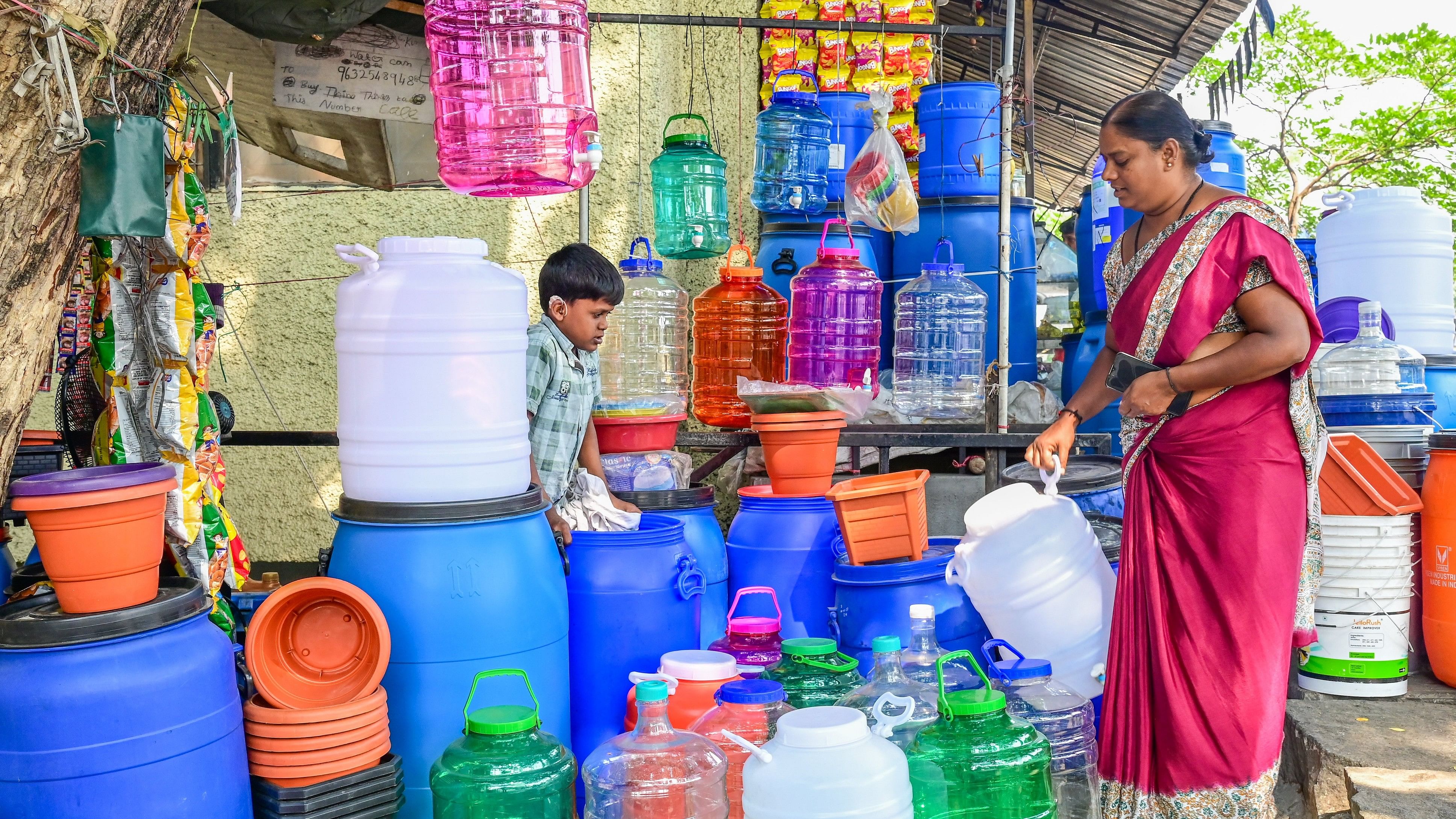
A woman buys a water can in Rajajinagar on Wednesday. Concerns over drinking water scarcity have surfaced across Bengaluru.
Credit: DH Photo/MS Manjunath
Bengaluru: The BWSSB may be promoting the use of treated water, but close to 50% of the sewage treatment plants (STPs) in the city do not comply with the National Green Tribunal’s (NGT) norms and they are yet to be upgraded.
While secondary treated water could be used for construction and other purposes, experts do not encourage its use in filling the lakes — something the BWSSB has proposed to improve groundwater levels.
In the first phase, the BWSSB has proposed to fill 14 tanks with treated water. Since only 50% of the STPs provide secondary treated water, experts warned that filling lakes with only secondary treated water would contaminate groundwater and cause health hazards.
“We have seen the impact of filling lakes and tanks with secondary water in Kolar and Chikkaballapur. In these areas, groundwater has been contaminated, owing to this project, and this has affected the health of the citizens. Secondary treatment does not remove heavy metals from the sewage, and this is hazardous, especially given that sewage in Bengaluru also carries industrial effluents,” Professor TV Ramachandra from the Indian Institute of Science told DH.
Shubha Ramachandran, a senior member of Biome Environment Trust, suggested that the BWSSB should constantly monitor the water quality and put the data out in the public domain.
"There are a few NGT standards that should be followed. If the BWSSB is able to reach those standards with secondary treatment, it is alright to pump the water. But since it will have a significant impact on the quality of groundwater, it is important to monitor the water quality constantly,” Ramachandran said.
“Unlike in Kolar or Chikkaballapur, where the water is mostly used for irrigation purposes, in Bengaluru, the water will be used for domestic purposes and this calls for more caution,” she added.
Of the 34 STPs in the city, only 16 are up to the standards and provide tertiary treated water, while the remaining 18 are equipped to provide only secondary treated water.
While the NGT had revised the STP standards in 2019, financial strife and administrative hurdles have forced the BWSSB to run the STPs below the standards for close to four years.
BWSSB sources said work to upgrade the plants was started a few months ago.
Water board will ensure quality
Admitting that people could be apprehensive, BWSSB Chairman Dr Ramprasat Manohar V assured that the board is pumping treater water into the lake after stringent tests.
“We will ensure water is tested by an independent laboratory to ensure quality is up to the standards,” he said, adding that all STPs are upgraded to meet the NGT standards.
At a glance
Number of STPs: 34 (Total capacity: 1,348.5 MLD)
STPs up to NGT standards: 16 (Total capacity: 607.5 MLD)
STPs not up to NGT standards: 18 (Total capacity: 741 MLD)